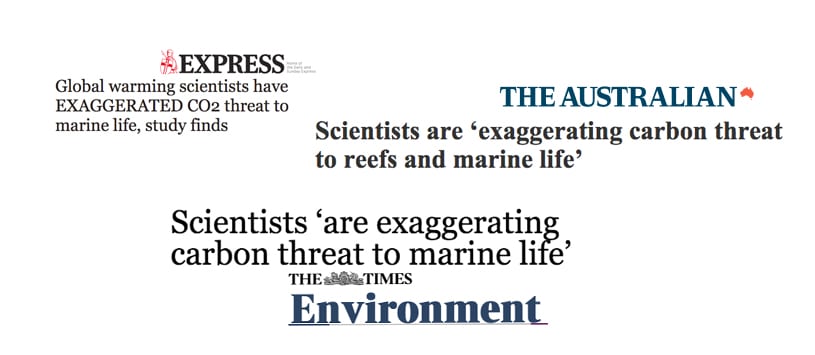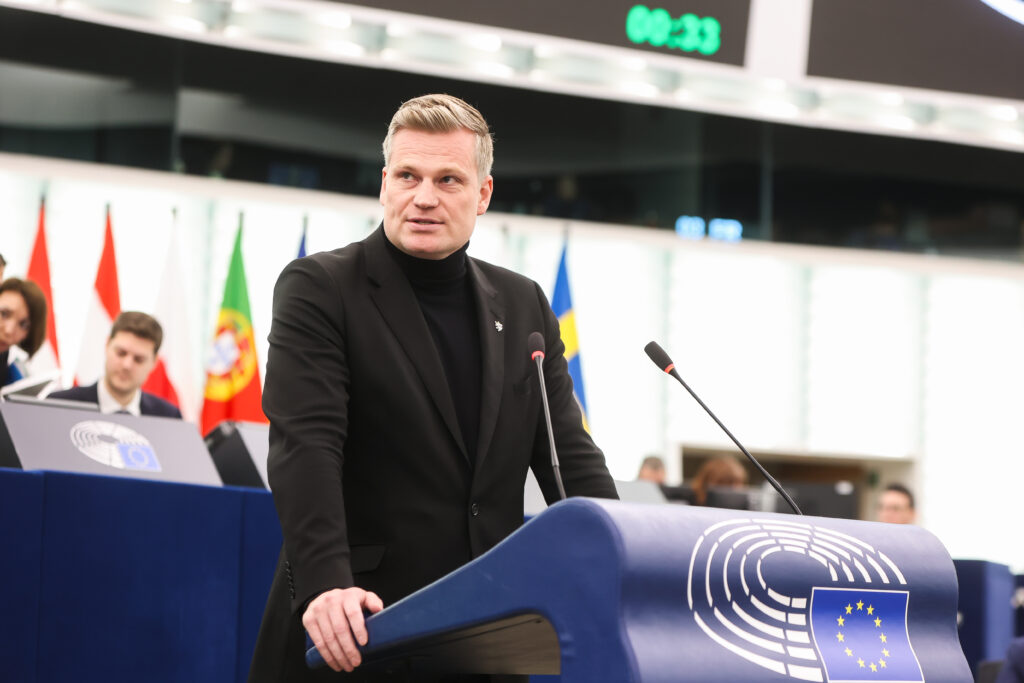A scientific journal editor has criticised the UK’s The Times newspaper for misinterpreting the findings of a special edition that looked at the science linking ocean acidification to impacts on marine organisms.
The Times story claimed the publication, led by Dr Howard Browman, had concluded most studies found ocean acidification had little or no impact on marine organisms.
But Browman, of the Institute of Marine Research in Norway, said The Times had omitted or misinterpreted key points and “cherry-picked” aspects of an interview with him.
Under the headline Scientists are ‘exaggerating carbon threat to reefs and marine life’, The Times reported on a “special issue” of the ICES Journal of Marine Science looking at ocean acidification, edited by Browman.
Ocean acidification (OA) refers to the effect that increased levels of carbon dioxide in the atmosphere have on the oceans, causing ocean pH to fall, meaning the water is less alkaline.
Thousands of OA studies have been published suggesting a wide range of negative impacts on marine organisms, from growth rates of corals to particular fish species and molluscs.
A major UN report said there was “high confidence” that ocean acidification “will increase for centuries if CO2 emissions continue, and will strongly affect marine ecosystems.” Effects would be greater when combined with rising ocean temperatures, the IPCC report said.
A study in Science in 2015 linked one of the world’s largest extinction events about 250 million years ago to ocean acidification.
Written by The Times’ environment editor Ben Webster, the story, republished on The Australian and echoed by the Daily Express, also claimed the impacts of OA on coral reefs had been “exaggerated”.
Browman told DeSmog he did not think that studies had “exaggerated” the impacts of OA, and his publication had not found this. But he said some studies could have been more carefully interpreted.
Responding to The Times, Browman issued a statement on Twitter:
[The journalist] cherry-picked our conversation and presents phrases out of context – seemingly in order to be sensational – despite the fact that I told him that the press was part of the “exaggeration” problem.
The Times story said Browman had “invited scientists around the world to contribute studies on ocean acidification” but “more than half of the 44 studies selected for publication” had found ocean acidification had little or no impact on marine species.
But a key reason why so many studies reported “little or no impact” was that Browman had deliberately encouraged researchers to submit articles that had found just these sorts of results.
Browman’s introduction in the special issue also outlined this approach, but this key point was missing from The Times’ newspaper report.
The Times report said there was an “inherent bias” in scientific journals towards “more calamitous predictions” and this had “excluded research” that showed marine organisms were not damaged by ocean acidification.
But Browman explained he had actually been referring to a well-known phenomenon that exists across many scientific disciplines known as “publication bias”.
This is where scientists in any discipline find it more difficult to publish studies that find no effect from the phenomena being studied.
“It is not correct to say that [studies showing little effect] could not get published,” he said.
Ocean acidification is happening and it will have effects, but on the other hand the more studies that appear, the more complex the issues become. The special issue was an attempt to identify strengths and weaknesses in the body of work on this topic and to introduce more balance and a higher standard of academic scepticism.
DeSmog asked The Times for a response to the criticisms contained in Browman’s Tweet. A spokesperson said the newspaper stood by its story.
In July 2015, The Times’ Webster wrote a story claiming sea ice researcher Peter Wadhams thought the deaths of three colleagues could have been part of a murder plot. Wadhams gave a conflicting account to DeSmogBlog and complained to the UK‘s Independent Press Standards Organisation, which did not uphold Wadhams’ complaints.
In 2014, Webster had a front page story claiming research by scientist Lennart Bengtsson that carbon dioxide was not as harmful as feared had been “deliberatly suppressed” by a journal because it was “unhelpful”. The report sparked headlines in conservative outlets around the world, despite Bengtsson himself clarifying that he did not agree with the main claim of The Times’ story and the journal explaining the research was rejected for scientific reasons.
Subscribe to our newsletter
Stay up to date with DeSmog news and alerts







